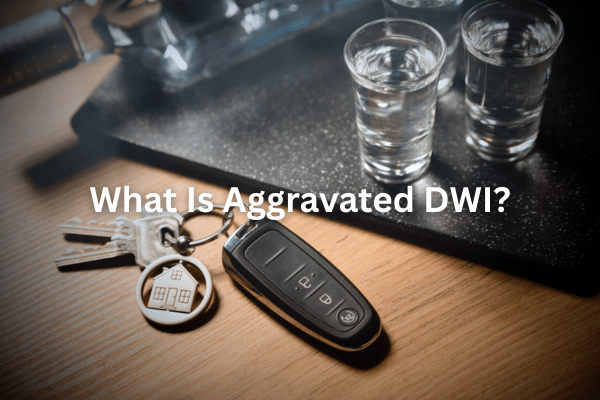

If you’ve heard the term “Aggravated DWI” and wondered how it’s different from a standard DWI, you’re not alone. In New York, “aggravated” means the law treats the situation as more serious because of the way the offense occurred or who was at risk. Understanding those distinctions can help you make smart, fast decisions after an arrest and avoid mistakes that could make things worse. I’m Ed Palermo, and I’ve defended Long Islanders in DWI cases for more than three decades. Below, I’ll break down what Aggravated DWI means, what penalties you could face, and the strategies that may protect your future.
New York recognizes several types of impaired driving charges. The most common are DWI per se (driving with a blood alcohol concentration of .08% or higher) and DWAI (driving while ability impaired by alcohol, typically associated with a lower BAC but observable impairment). Aggravated DWI is a higher-tier offense triggered by specific circumstances that the legislature considers especially risky. The two most common aggravated scenarios are:
There are other ways a case can become more serious—like an injury crash—but those are typically charged as separate felonies. When people say “Aggravated DWI,” they’re usually referring to one of the two scenarios above.
The state’s rationale is risk. A BAC at .18% or higher correlates with significantly increased crash risk, slower reaction times, and reduced judgment. Likewise, transporting a child while intoxicated puts a vulnerable passenger at direct risk. Because the perceived danger is higher, the penalties and collateral consequences go beyond those for a standard DWI.
Every case is unique, and outcomes depend on your record, the facts, the jurisdiction, and how the case is handled. That said, Aggravated DWI generally brings stiffer consequences than a standard first-offense DWI. Potential outcomes include:
Your prior record (within the past 10 years), any accident or injuries, whether a chemical test was taken or refused, your BAC, and how you interacted with police all matter. Mitigation can also matter—documented alcohol treatment, counseling, stable employment, character references, and evidence of responsible steps taken after the arrest can influence outcomes when presented effectively.
The state must prove operation, impairment (or a per se BAC level), and jurisdiction beyond a reasonable doubt. In a High BAC aggravated case, the breath or blood test result is central. That opens the door to several defense angles:
For child-passenger aggravated cases, the presence and age of the child must be proven, and the underlying DWI elements must still be established.
Reductions are possible in some cases, but they must be earned. Even in aggravated scenarios, a prosecutor may consider a reduction if there are evidentiary issues, compelling mitigation, or equities that make a harsh outcome unnecessary. On Long Island, practices vary by court and by facts. I focus early on identifying legal and factual weaknesses, addressing any alcohol-related concerns proactively, and presenting a persuasive mitigation package. That combination gives you the best chance at a favorable resolution.
My strategy is both legal and practical. Legally, I challenge the stop, arrest, and testing process. Practically, I help clients take concrete steps that show the court they take the situation seriously—safe-drive commitments, responsible transportation plans, interlock readiness, and treatment when appropriate. I also keep clients informed at every stage, so there are no surprises about what’s next.
A child-passenger allegation can be charged as a felony even for a first-time offender. Repeat alcohol-related convictions within 10 years can also elevate charges to felony status. If you are facing any felony DWI count, it’s critical to get counsel who understands both the legal defenses and the sentencing landscape on Long Island.
Aggravated DWI charges are serious, but they are also defendable. The earlier we start, the more options we have both to protect your license and to shape how the case is resolved. With thorough investigation, strategic mitigation, and clear communication, you can often avoid the worst consequences and get back on steady ground.
If you or a loved one is facing an Aggravated DWI in Suffolk or Nassau County, contact me, Ed Palermo, for a free, confidential consultation. With over three decades of experience defending DWI cases on Long Island, I’m ready to analyze your situation, explain your options in plain English, and fight for the best possible outcome.